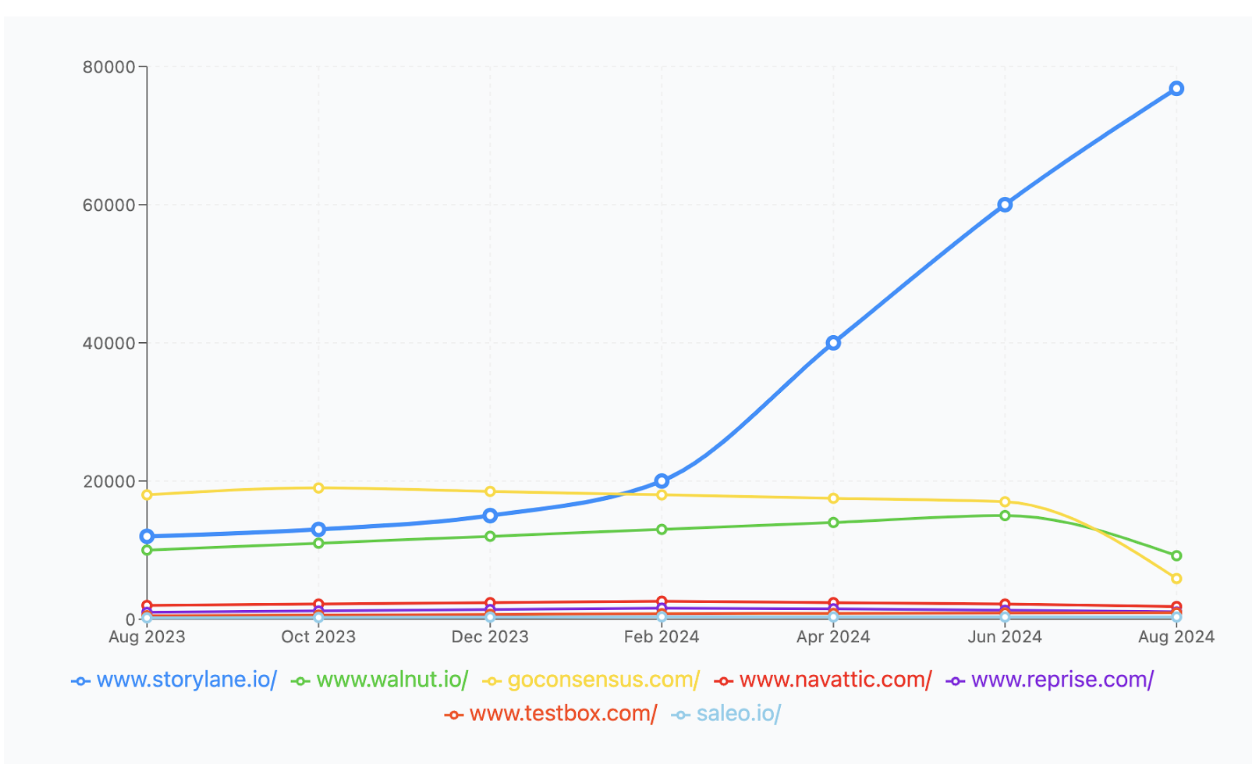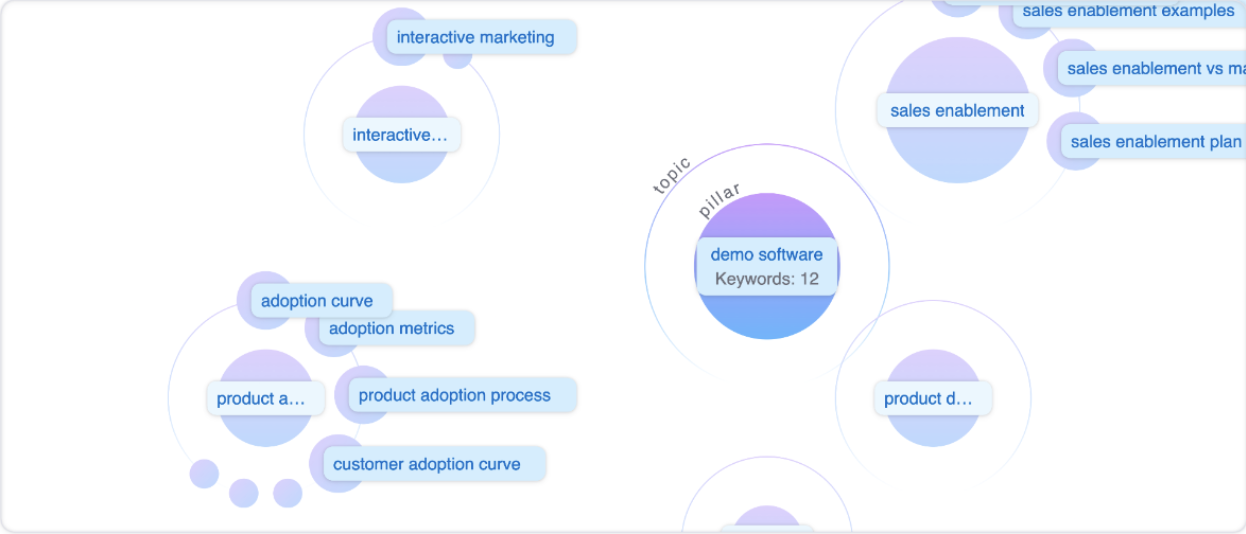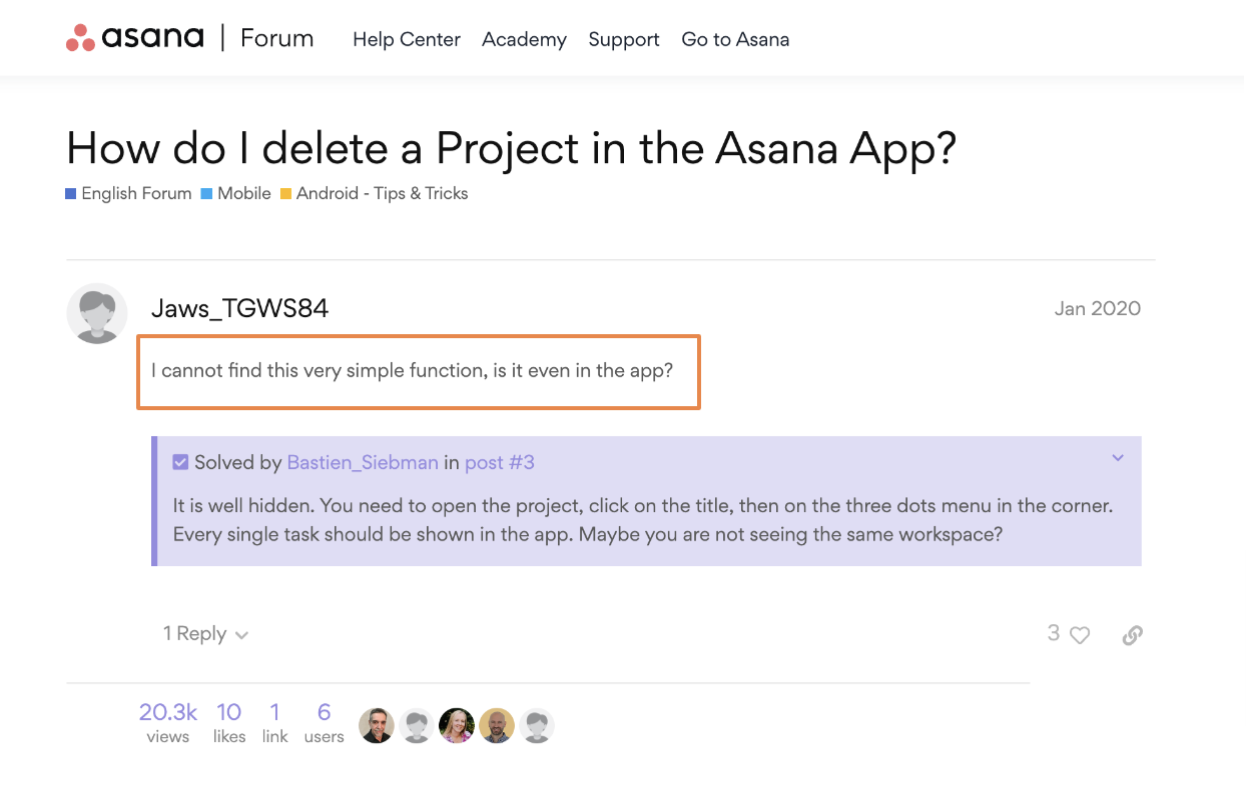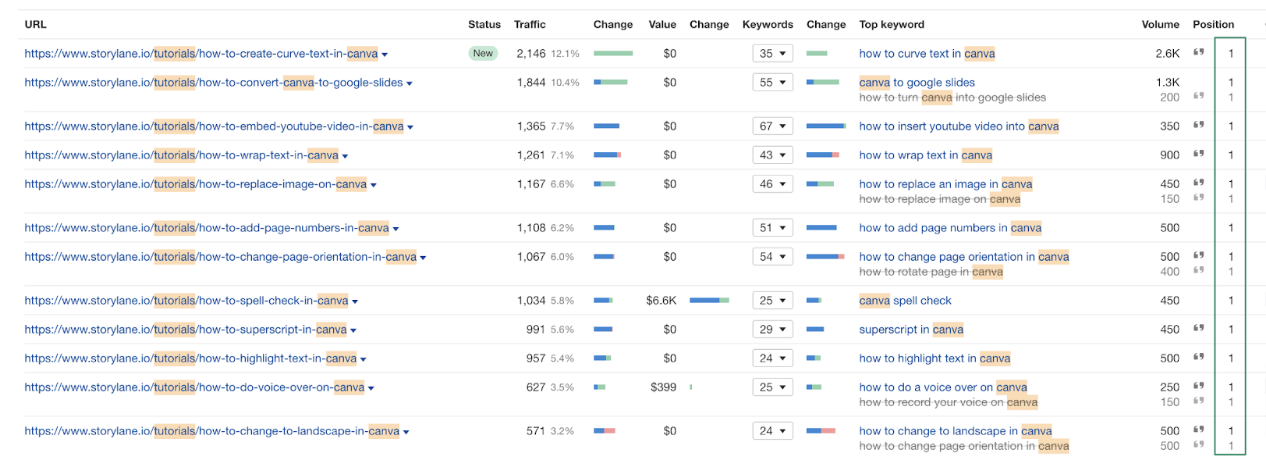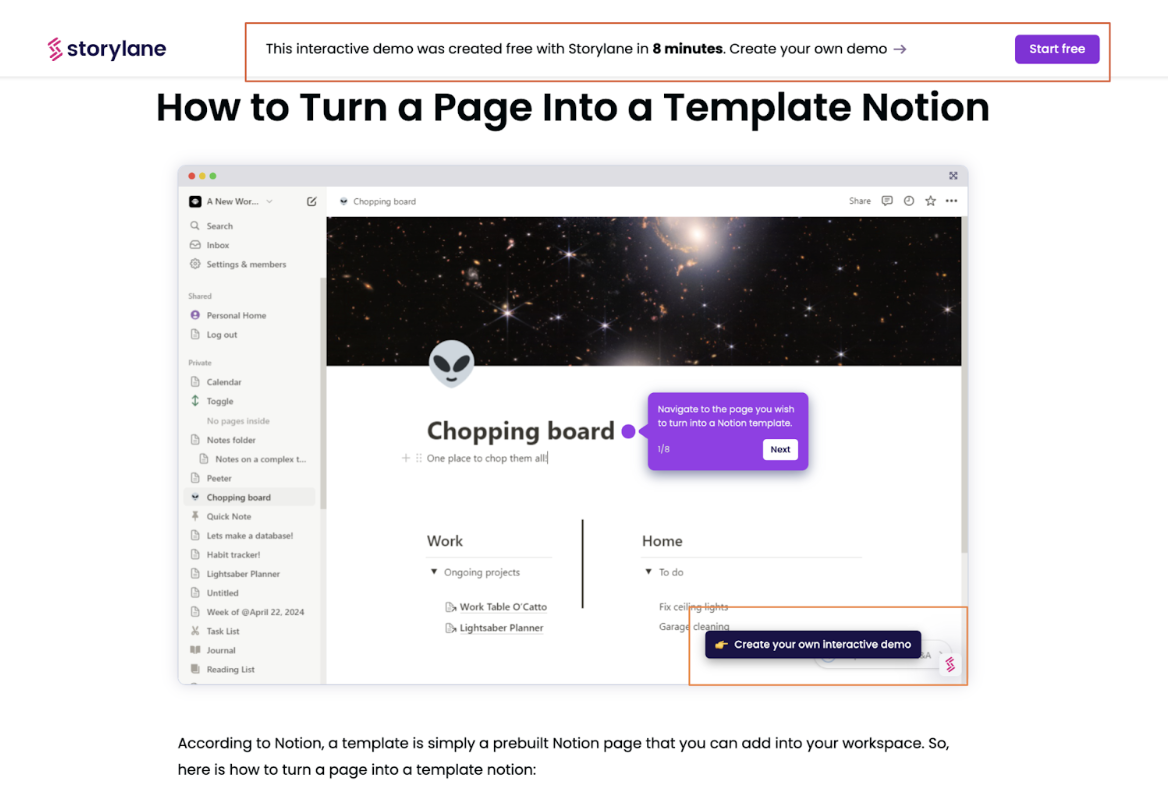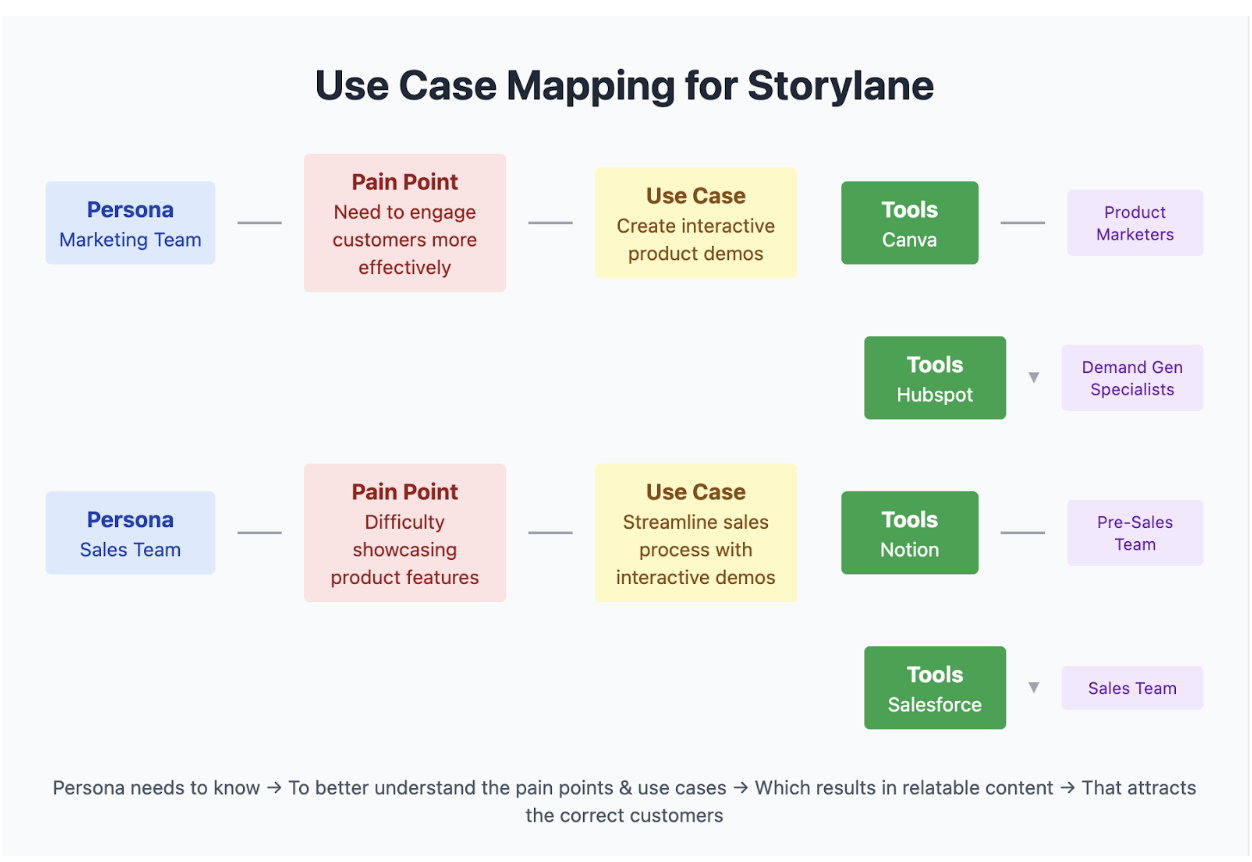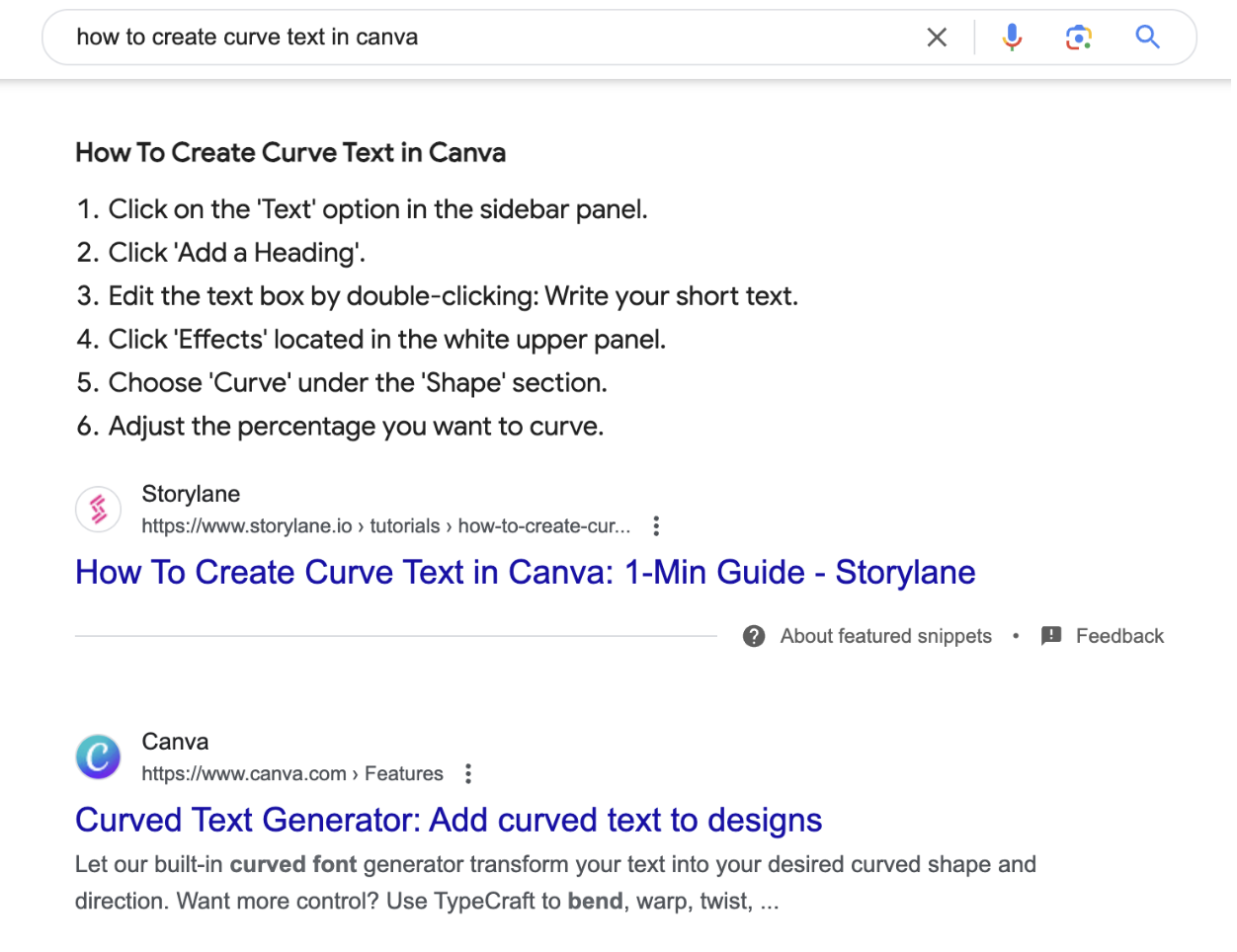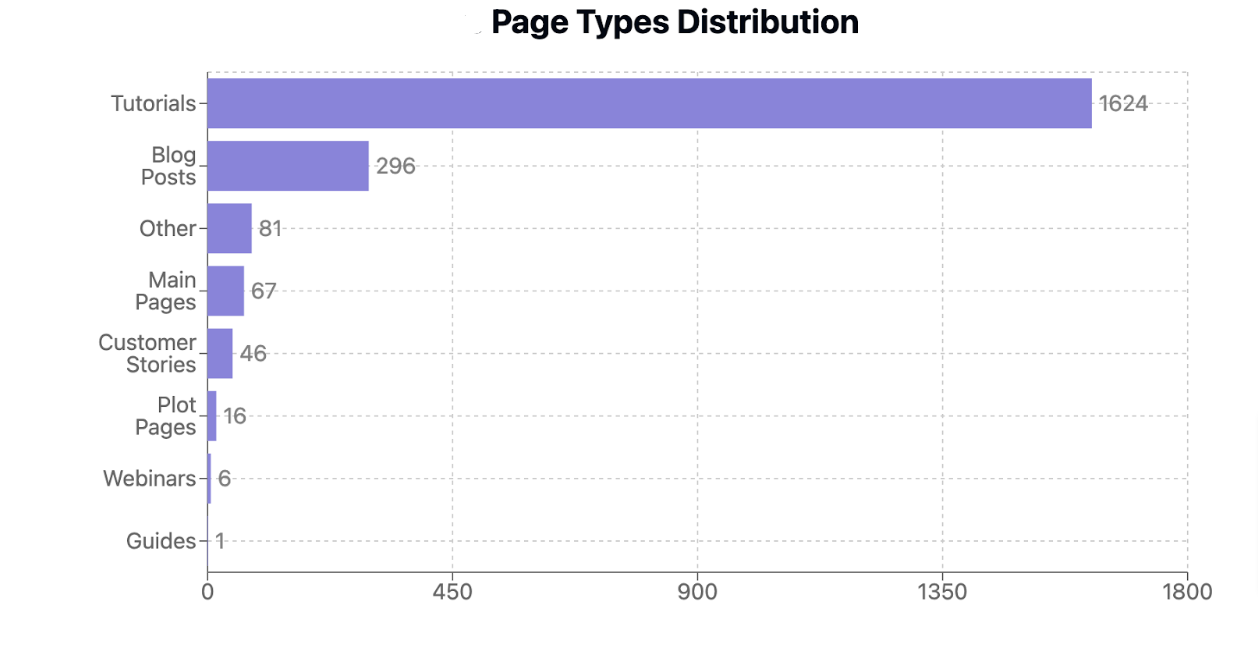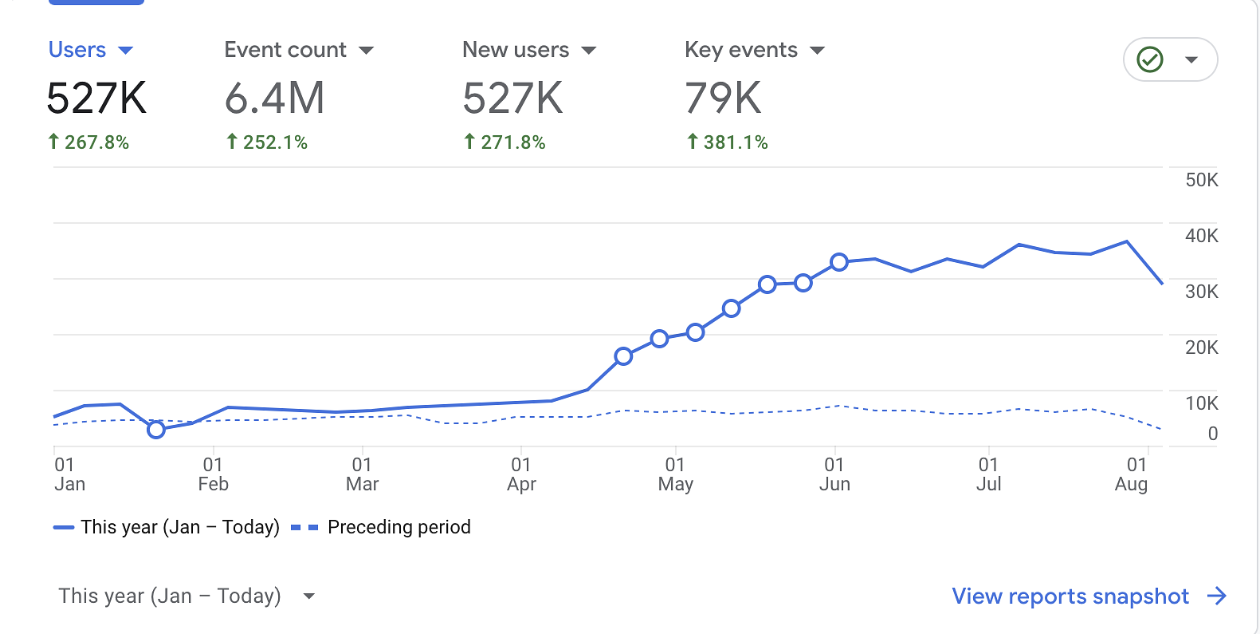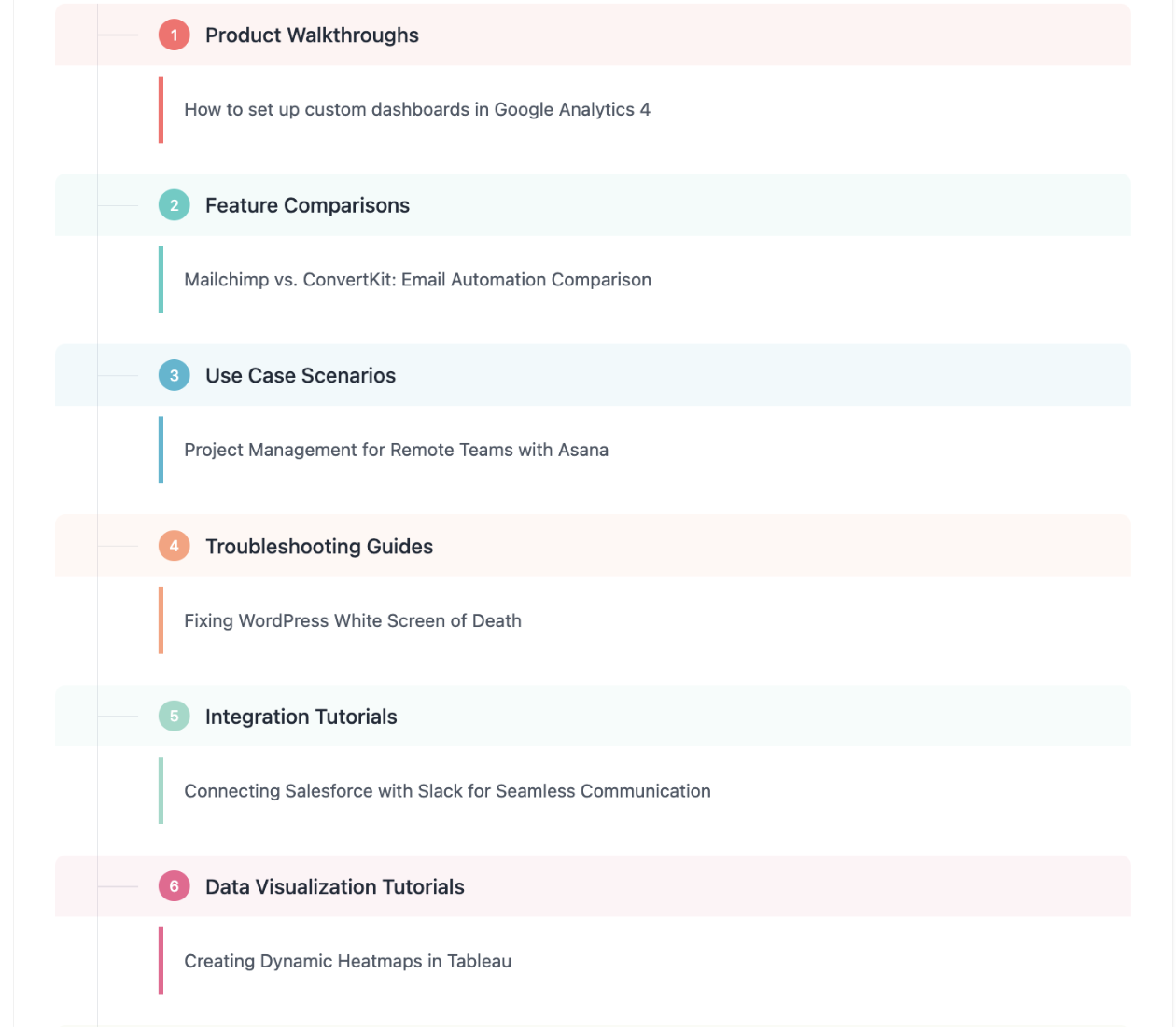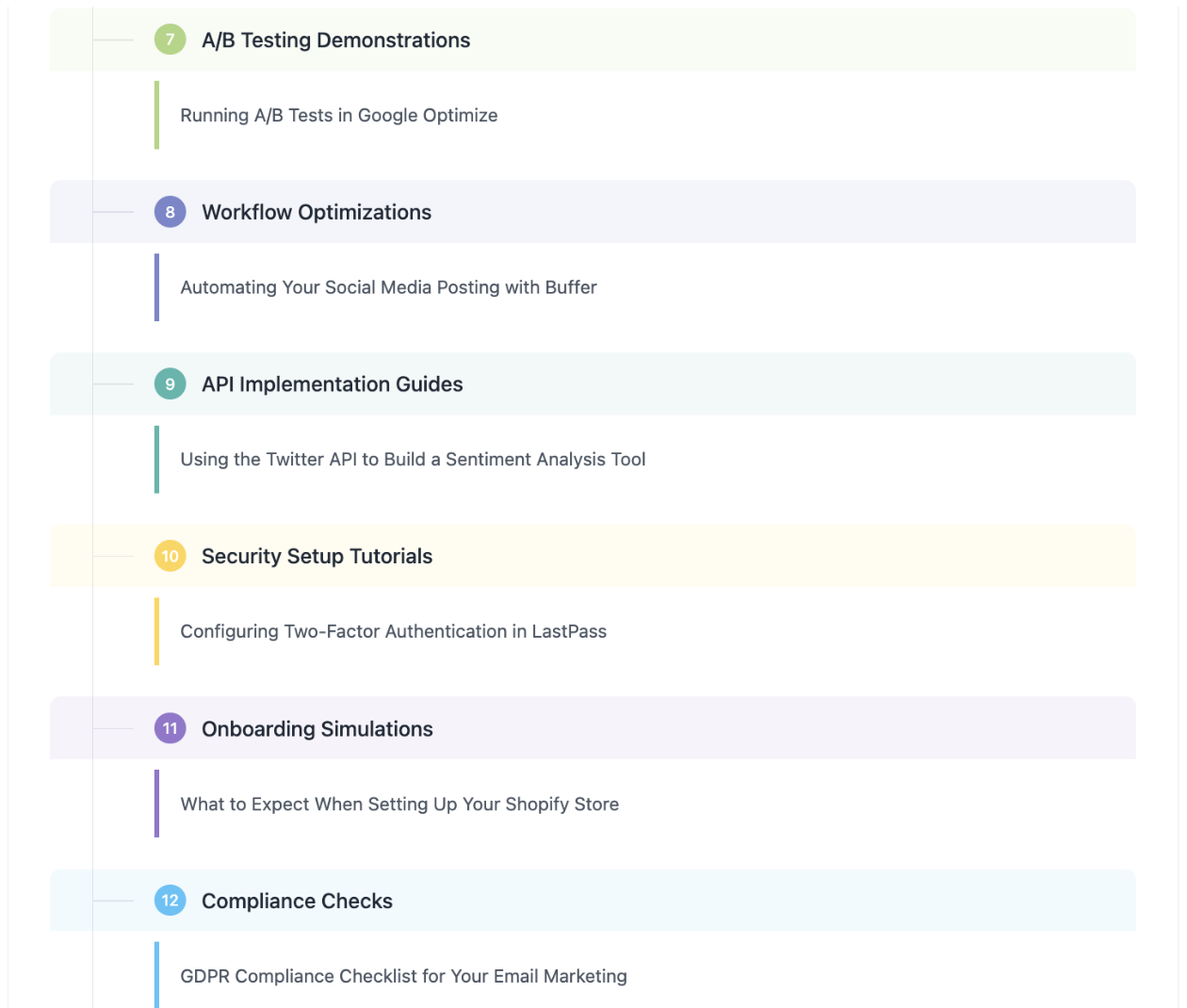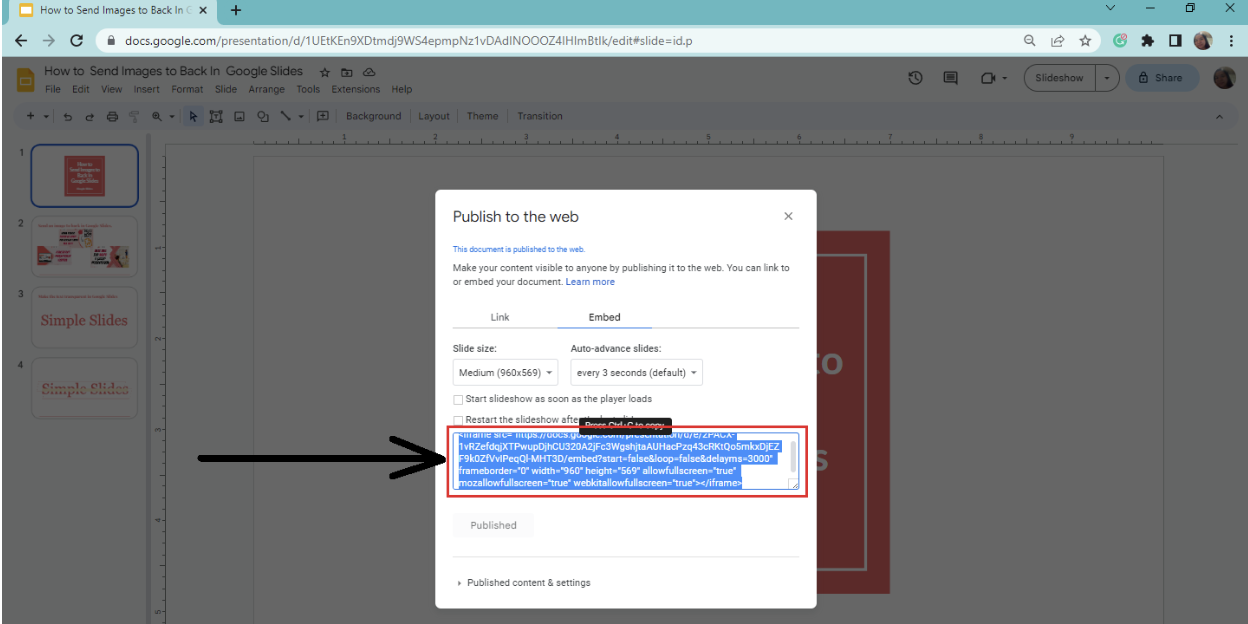Interactive Content Effect
Aatif Mohd
30th Aug, 2024 , 7 min read
Deep dive into Storylane's playbook to "Demo-led SEO"
The world of SaaS is high-stakes where every percentage point of growth is hard-fought. Imagine stumbling upon an SEO opportunity that not only takes your organic traffic from 25k to 150k+ monthly visitors but also:
- Boosts sign-ups by 40% month-over-month
- Closes multiple $10k+ deals directly from new content
- Outranks industry Goliaths like Salesforce and Canva
This isn't just another SEO playbook; it's a masterclass in identifying untapped market opportunities & leveraging them for exponential growth.
Storylane didn't just think outside the box; they rebuilt the entire content strategy framework.
They've pioneered an approach that's as much about product-led growth as it is about SEO, creating a flywheel effect that's disrupting the digital marketing landscape.
The Backstory: A Quest for Growth
Like a startup searching for the holy grail of scalable growth, Storylane was on a mission. Their goal? Leverage SEO to fuel their product-led growth (PLG) strategy.
By February 2024, they had already climbed to the top of the SEO mountain, outranking most direct competitors in their space.
To put this in perspective: SEO wasn't just leading their traffic chart; it was lapping the competition.
As a startup, it is important to bank on your customers that have helped the company achieve product market fit.
In the fast-paced world of SaaS, standing still is the same as moving backwards. There was a problem – the market for product demos with commercial intent seemed as slim as a supermodel's diet plan.
Storylane has done a good job of capturing demand for bottom of the funnel customers by building content clusters around their core product offerings such as -> Product demo software -> Sales enablement -> Interactive content -> Product adoption tools to name a few....
Eureka moment
For Storylane the primary ICP is based on their current customer base that are power users & have a solid use case consisting off
They identified a gap, marketing & sales teams use a dozen of software to help them in doing their day-to-day tasks.
With the influx of software, there is also a likelihood of everybody not being freaks who know how to use every single feature within the tool.
For example, product marketers use tools like Canva, Notion, Asana, HubSpot etc. Storylane researched if there is any demand for “how to do X in [software]” queries
Might be searching for "how to delete a project in asana" for instance.
This is the current page that Asana has
Notice how people are struggling & fumbling their way to get basic things done by themselves
Most of the search results for these types of searches are filled with Help Center and docs resources. This isn’t maintained well usually, the documentation of this type of content is handled by the customer support teams often not very helpful to searchers.
Storylane identified there is a ton of demand for “how to do X in [software]” type of queries Now they had to be smart about it & carefully pick software that their core ICP uses to be relevant while still staying broad enough to target sales & marketing teams.
When selecting software & topics to cover, Storylane has tried to match them with what they are selling. For example - even if Canva isn’t a direct fit, someone researching a brand kit might still be involved in managing the brand and could advocate for them.
In mid-market and enterprise deals, they’ve been multi-threaded, reaching out to multiple stakeholders, not just the main champion. This seems to be one of the reasons why they were able to close many $10k+ deals with it.
Their goal is simply to create a better user experience for searchers.
By offering an interactive product demo walkthrough of how to solve a problem within a solution and then use that as a way to plug Storylane into the narrative
They’ve brilliantly plugged the CTA’s into the narrative & the freemium PLG motion quickly incites action in a user
To summarize, they expanded their digital footprint to capture demand from customers who are in the middle of the funnel and can find immense value from their product. Here’s the scoop in an easy to follow diagram
This strategy has allowed them to outrank SEO beasts like Canva, Notion which have a stronger search presence & authority
Storylane’s Search Console shows this tremendous growth story well
- August 2023: ~500 average daily clicks
- August 2024: ~3,750 average daily clicks
The Secret Sauce: "Demo-led SEO"
What They're Doing Differently
- Interactive Demos vs. Text-Heavy Guides: Instead of the usual 2000-word step-by-step tutorials, Storylane is creating short, interactive product demos for each "how-to" keyword.
- Massive Scale: They've created 1500+ of these demo pages (and counting).
Why It's Working: SEO pov
Engagement Metrics Make Google Swoon
Despite lower time-on-page, engagement rates for Storylane have soared to 85.9% (vs. 29.7% industry benchmark). We know from Google’s Algo Leaks shocking revelation that Google uses data (clicks) from its Chrome browser as part of the search experience.
This means that despite denying it, user behaviour in Chrome affects search rankings.
The way users land on your site, how they interact with it, and where they go after leaving bear value for rankings of the page.
If users spend more time on the page clicking & interacting with the demo it could be ranked higher than your page.
The "Open Tab" Effect
In my opinion, when users are trying to find a solution within a tool I believe they are likely going to:
- Open the interactive demo
- Open a new tab with the actual tool
- Follow along, switching between tabs
This behaviour increases dwell time (time before returning to search results). Another positive signals to Google that the content is highly relevant and useful
This may have played well in Storylane’s favour where Google is seeing several clicks and considering the content to be of high quality.
Why this works for their ICP:
- Multi-threaded approach: By targeting both decision-makers and influencers, Storylane increases its chances of gaining traction in mid-market and enterprise deals, where multiple stakeholders are involved.
- Educational value: Their ICP often needs to create product demos or explain complex tools. By providing interactive demos for various tools, Storylane showcases the value of their own product while solving immediate problems for their target audience.
- Exposure to new technology: Many marketers in their ICP aren't familiar with interactive demo technology. By introducing this concept through familiar tools, Storylane is priming their audience for their own product.
- Scalability with quality: The strategy allows Storylane to scale content production while maintaining relevance to their core audience. High-quality, targeted content (e.g., Salesforce demos) attracts key decision-makers, while broader content (e.g., Canva tutorials) increases overall visibility.
- Addressing various stages of the buyer's journey: The mix of specific, high-intent keywords and broader terms allows Storylane to capture potential customers at different stages, from awareness (broader tools) to consideration (specific, ICP-focused tools).|
This nuanced approach to keyword targeting showcases Storylane’s deep understanding of their ICP's needs, challenges, and the broader ecosystem they operate in. Like I always say, It's not just about attracting traffic; it's about attracting the right traffic that has a high potential for conversion, while also casting a wider net to influence the entire buying journey.
Content Creation Process: Scaling with Precision
Storylane's content creation machine is a masterclass in scalable, high-quality output. Let's dissect their approach:
Specialized Writers: The Secret Weapon
- For complex tools (Salesforce, HubSpot), they hired writers with deep domain expertise. These aren't just copywriters; they're product specialists who can create demos that truly resonate with power users.
- Smart move: This ensures their content isn't just SEO-friendly, but genuinely valuable to their high-intent target audience.
VAs: The Scale Enablers
- For simpler tools (Canva, Notion, Slack), they leveraged Virtual Assistants.
- Time efficiency: Each VA churns out 10-25 pages per week, depending on the tool's complexity.
- Cost-effective scaling: This approach allows Storylane to produce massive volumes of content without breaking the bank.
Training: The Consistency Key
- They created a 10-minute training video to onboard new content creators.
- Genius hack: This ensures consistent quality across hundreds of demos, even with a distributed workforce.
- Example posts provided: Real-world benchmarks keep everyone aligned on expectations. Here’s an example page from Storylane
Production Volumes: The Numbers Game
- Writers/VAs submit 10-25 pages weekly.
- Do the math: With just 10 content creators, they could potentially produce 100-250 pages per week. No wonder they scaled to 1500+ pages so quickly!
Quality Control: The Trust Builder
- In-house team reviews each demo and accompanying text.
- Time investment: This process takes about half a day.
- ROI goldmine: This step ensures every piece of content strengthens the brand, rather than diluting it.
Scaling Strategy: The Growth Enabler
- As demand grows, they can easily hire more specialized writers or VAs.
- Flexible firepower: This model allows them to rapidly respond to market opportunities or competitor movements.
This content creation process is a perfect storm of efficiency, quality, and scalability. By strategically balancing specialized expertise with cost-effective production, Storylane has cracked the code on producing masses of highly relevant, high-quality content. It's not just about volume; it's about creating a content ecosystem that simultaneously serves their SEO & more importantly business goals. The content demonstrates their product value and builds trust with their target audience.
This approach doesn't just fill the middle of the funnel – it primes every piece of content to nurture leads through the entire sales process.
Click-Happy Users = Happy Google
Interactive demos encourage multiple clicks and interactions. There is a high likelihood if clicks are being tracked as events, these can inflate engagement rates and looking at “key events” as a means to track actual conversion rates is going to be more accurate.
Content Formats for Use Case Expansion
The Missing Piece in Your SEO Puzzle
Is Storylane the only way to experience this differentiated user experience & engagement rate on your website?
Well not really, if you’d prefer having a cost effective free option that still gives you all the benefits. Well don’t worry I got your back
I’ve looked under the hood of how these interactive demos work and what they use. Guess what these are built on <iframe>
Even Google’s own properties viz Google Slides, Google Docs, Google Form if you choose to embed them within your website use <iframe>
This means if you have a use-case where leveraging any of these asset types we spoke about earlier.
It would make sense to embed them within your website.
As long as the user needs to click, not scroll through to access your file on the page. It can be a means for you to experience the fruits of higher engagement rates resulting in better visibility on Google.
Would you like to make an integrative set of choices that positions you on a playing field of your choice in a way that you win?
Do you need help building an SEO strategy?
If you’re interested in discovering new avenues to grow traffic with SEO email us at aatif@gamechangrs.co to start the conversation.
Unlock your business's true potential with reactive SEO
Made in Typedream


